Here are some events that happened on August 28th. It could be an event or a person that died or was born on that day
1645 Born: Hugo Grotius, Dutch playwright, philosopher, and jurist (b. 1583)
Hugo Grotius (10 April 1583 – 28 August 1645), also known as Huig de Groot or Hugo de Groot, was a Dutch humanist, diplomat, lawyer, theologian and jurist.
A teenage intellectual prodigy, he was born in Delft and studied at Leiden University. He was imprisoned for his involvement in the intra-Calvinist disputes of the Dutch Republic, but escaped hidden in a chest of books. Grotius wrote most of his major works in exile in France.
Hugo Grotius was a major figure in the fields of philosophy, political theory and law during the sixteenth and seventeenth century. Along with the earlier works of Francisco de Vitoria and Alberico Gentili, he laid the foundations for international law, based on natural law in its Protestant side. Two of his books have had a lasting impact in the field of international law: De jure belli ac pacis [On the Law of War and Peace] dedicated to Louis XIII of France and the Mare Liberum [The Free Seas]. Grotius has also contributed significantly to the evolution of the notion of rights. Before him, rights were above all perceived as attached to objects; after him, they are seen as belonging to persons, as the expression of an ability to act or as a means of realizing something.
It is thought that Hugo Grotius was not the first to formulate the international society doctrine, but he was one of the first to define expressly the idea of one society of states, governed not by force or warfare but by actual laws and mutual agreement to enforce those laws. As Hedley Bull declared in 1990: "The idea of international society which Grotius propounded was given concrete expression in the Peace of Westphalia, and Grotius may be considered the intellectual father of this first general peace settlement of modern times." Additionally, his contributions to Arminian theology helped provide the seeds for later Arminian-based movements, such as Methodism and Pentecostalism; Grotius is acknowledged as a significant figure in the Arminian-Calvinist debate. Because of his theological underpinning of free trade, he is also considered an "economic theologist".
Grotius was also a playwright, and poet. His thinking returned to the forefront after the First World War.
Stamps from the Netherlands and France depicting Hugo de Groot
1749 Born: Johann Wolfgang von Goethe, German novelist, poet, playwright, and diplomat (d. 1832)
Johann Wolfgang von Goethe (28 August 1749 – 22 March 1832) was a German writer and statesman. His works include: four novels; epic and lyric poetry; prose and verse dramas; memoirs; an autobiography; literary and aesthetic criticism; and treatises on botany, anatomy, and colour. In addition, numerous literary and scientific fragments, more than 10,000 letters, and nearly 3,000 drawings by him have survived. He is considered the greatest German literary figure of the modern era.
A literary celebrity by the age of 25, Goethe was ennobled by the Duke of Saxe-Weimar, Karl August, in 1782 after taking up residence in Weimar in November 1775 following the success of his first novel, The Sorrows of Young Werther (1774). He was an early participant in the Sturm und Drang literary movement. During his first ten years in Weimar, Goethe became a member of the Duke's privy council, sat on the war and highway commissions, oversaw the reopening of silver mines in nearby Ilmenau, and implemented a series of administrative reforms at the University of Jena. He also contributed to the planning of Weimar's botanical park and the rebuilding of its Ducal Palace.
Goethe's first major scientific work, the Metamorphosis of Plants, was published after he returned from a 1788 tour of Italy. In 1791 he was made managing director of the theatre at Weimar, and in 1794 he began a friendship with the dramatist, historian, and philosopher Friedrich Schiller, whose plays he premiered until Schiller's death in 1805. During this period Goethe published his second novel, Wilhelm Meister's Apprenticeship; the verse epic Hermann and Dorothea, and, in 1808, the first part of his most celebrated drama, Faust. His conversations and various shared undertakings throughout the 1790s with Schiller, Johann Gottlieb Fichte, Johann Gottfried Herder, Alexander von Humboldt, Wilhelm von Humboldt, and August and Friedrich Schlegel have come to be collectively termed Weimar Classicism.
The German philosopher Arthur Schopenhauer named Wilhelm Meister's Apprenticeship one of the four greatest novels ever written, while the American philosopher and essayist Ralph Waldo Emerson selected Goethe as one of six "representative men" in his work of the same name (along with Plato, Emanuel Swedenborg, Montaigne, Napoleon, and Shakespeare). Goethe's comments and observations form the basis of several biographical works, notably Johann Peter Eckermann's Conversations with Goethe (1836).
German stamps depicting Goethe
1943 Died: Boris III of Bulgaria (b. 1894)
Boris III (30 January 1894 – 28 August 1943), originally Boris Klemens Robert Maria Pius Ludwig Stanislaus Xaver (Boris Clement Robert Mary Pius Louis Stanislaus Xavier), was the Tsar of the Kingdom of Bulgaria from 1918 until his death.
The eldest son of Ferdinand I, Boris acceded to the throne upon the abdication of his father, following Bulgaria's defeat during World War I. This was the country's second major defeat in only five years, after the disastrous Second Balkan War of 1913. Under the Treaty of Neuilly, Bulgaria was forced to cede new territories and pay crippling reparations to its neighbours, thereby threatening political and economic stability. Two political forces, the Agrarian Union and the Communist Party, were calling for the overthrowing of the monarchy and the change of the government. It was in these circumstances that Boris succeeded to the throne.
Some stamps issued by Bulgaria depicting King Boris III
The eldest son of Ferdinand I, Boris acceded to the throne upon the abdication of his father, following Bulgaria's defeat during World War I. This was the country's second major defeat in only five years, after the disastrous Second Balkan War of 1913. Under the Treaty of Neuilly, Bulgaria was forced to cede new territories and pay crippling reparations to its neighbours, thereby threatening political and economic stability. Two political forces, the Agrarian Union and the Communist Party, were calling for the overthrowing of the monarchy and the change of the government. It was in these circumstances that Boris succeeded to the throne.
Some stamps issued by Bulgaria depicting King Boris III


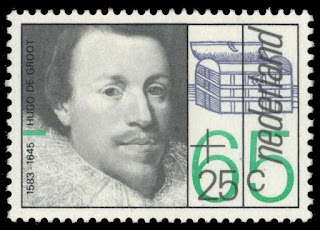

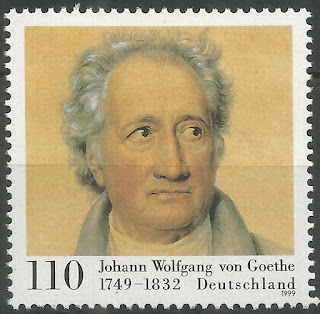

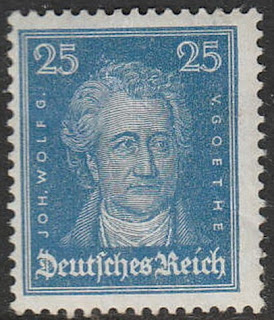
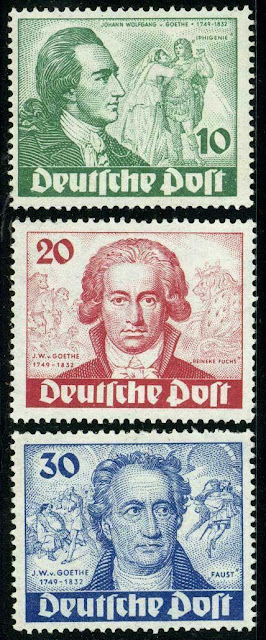

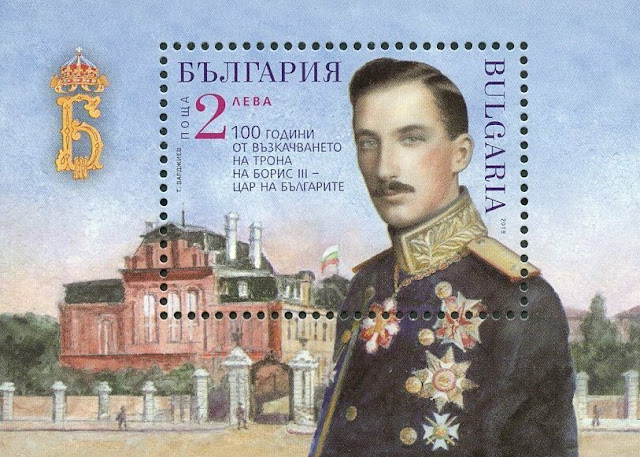
No comments:
Post a Comment